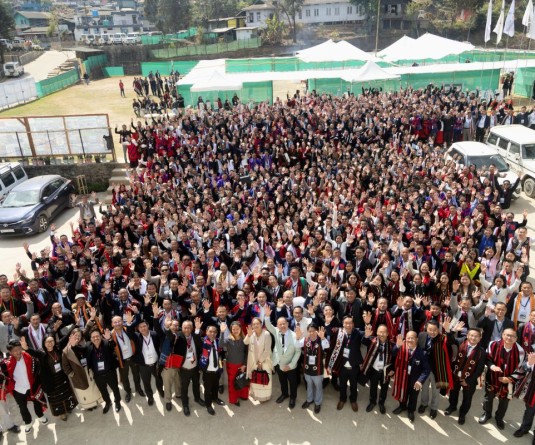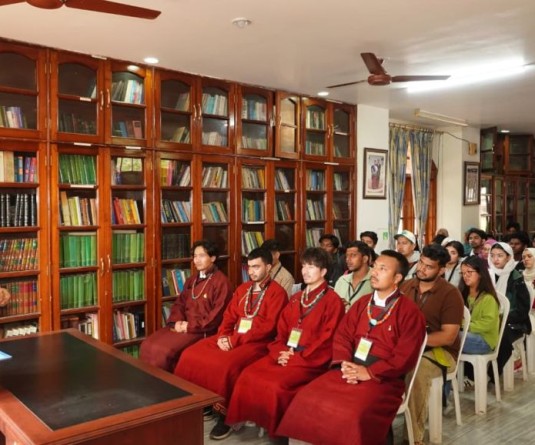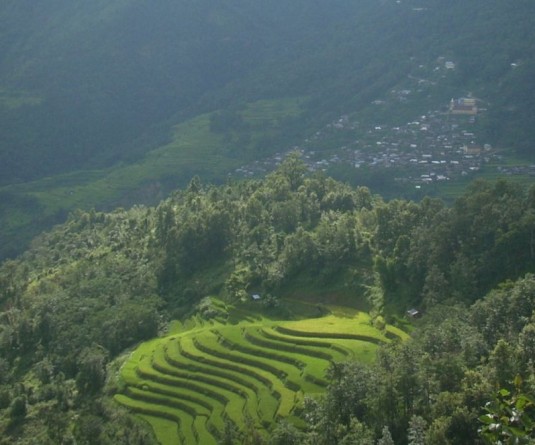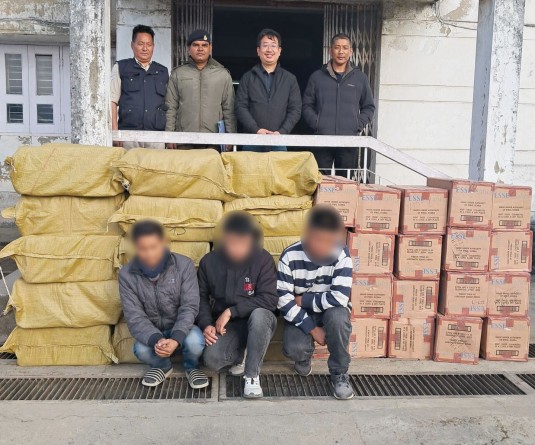
Kohima, April 5 (MExN): The Global Naga Forum (GNF), while welcoming the G20 Summit Delegation, urged them for ‘Peaceful Resolution of the 75-year old Indo-Naga Political Problem & Sustainable Economic Growth of the Naga Homeland and the Region.’
In an open public appeal on April 4, the GNF maintained that the Naga Homeland comprised of not only the State of Nagaland but parts of Manipur, Assam, and Arunachal Pradesh in India and in northwest Myanmar.
In the two-part appeal, the Forum urged the delegation to for “diplomatic intervention with the Government of India to resume and complete the negotiation for a peaceful resolution of the Indo-Naga political problem, including the repeal of AFSPA (Armed Forces Special Powers Act, 1958).
In addition, it sought “assistance with investments and expertise to help us grow our economy and develop our homeland into an ecologically rich and thriving democracy.”
“We are making these two related appeals together because Naga people know…that without political self-determination and stability based on the rule of law, there can be no dependable and sustainable economic growth,” it added.
The GNF also stated its aspiration of peace in “our homeland and for mutually beneficial collaborations with our neighbors in the region.”
It further highlighted that the Nagas living on the Myanmar side of the international border face even greater challenges and expressed hope that the delegation’s visit would lead to investments and grant-driven projects for wholesome improvements not only for the people of Nagaland but for all Nagas people living in India and in the Sagaing and Kachin areas in Myanmar.
India's Look East/Act East Policy, which aims to strengthen ties between India and Southeast Asia, is bound to be lopsided and stay mostly at the level of political rhetoric unless it includes the development of Naga areas in Myanmar, the GNF asserted.
The culturally diverse and rich Naga people dream of a time when they can play a parts in promoting ecologically sustainable economic growth and peaceful co-existence for all, it said, urging the delegates to “help us work toward our goal.”
It also accused the Government of India of “neglect and delay in resolving the long-pending Indo-Naga peace settlement.”
“There have been multiple rounds of talks and negotiations between the Indian Government and the Nagas. But the government has repeatedly gone back on its commitments, including the Framework Agreement of August 2015. India’s failure to deliver on its promises for so long has caused divisions and immense frustration among the Naga people, thus proving the success of India’s divide-and-rule power play,” it claimed.
On the military side, the draconian AFSPA have resulted in gross human rights abuses and killings of innocent civilians, it added. “And on the Myanmar side, Nagas face exploitation and forced labor as well as violence and gross human rights violations from the Tatmadaw.”
Accordingly, the GNF questioned the “global community's silence for so long on the treatment of the Nagas by India and Myanmar.”
In this connection, it requested the Members of the G20 Summit, to use thier individual and collective influences in ways that help “start a new era of peace, justice, and all-round prosperity in the Naga homeland and the region.”
Specifically, the Forum called for “diplomatic spaces wherein India and Myanmar and the Nagas can explore and find mutually beneficial substitutes for the endless conflicts”; help with the repeal of AFSPA; and assistance for sustainable economic growth.






